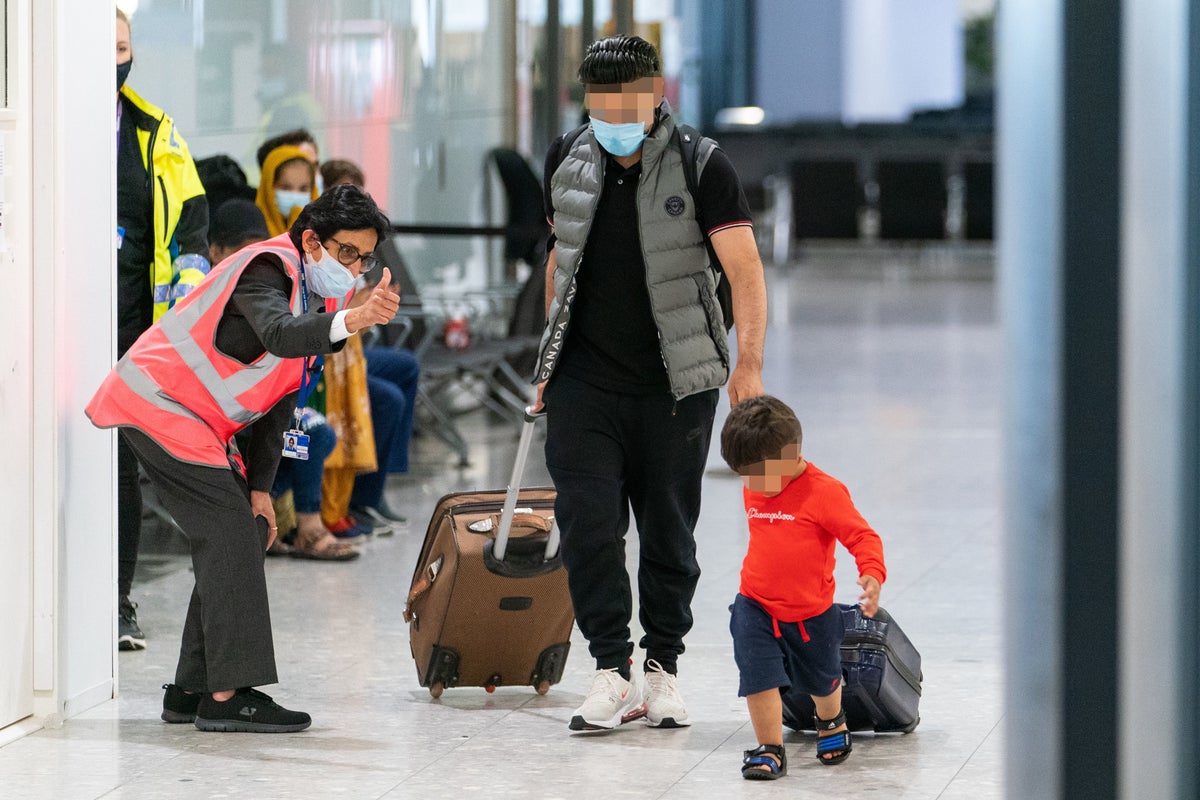The government has been urged to let hero Afghans granted sanctuary in Britain bring their loved ones to the UK after a major data breach put the lives of up to 100,000 people at risk from the Taliban.
More than 50 refugee charities and lawyers have written to Yvette Cooper, urging her to make it easier for Afghans who were allowed to relocate to the UK due to British links to bring family members – many of whom are at risk of reprisals – with them.
The pleas come after revelations of a “catastrophic” data leak at the Ministry of Defence in February 2022, which involved the details of thousands of Afghans who said they were in danger from the Taliban and had applied for sanctuary in Britain being shared online.
The dataset, inadvertently sent out by a member of the armed forces, included the personal details of applicants to the MoD’s Arap resettlement scheme, which allows Afghans who supported British troops to seek sanctuary in the UK. The leak was covered up by a superinjunction, which was lifted in July after The Independent challenged the draconian legal order at the High Court.
Ms Cooper has now been told the government “has no time to waste” if it “wants to prevent the worst possible consequences of the data leak becoming a dire reality”.
Charity workers and solicitors, including from Asylum Aid and modern slavery charity Kalayaan, told Ms Cooper: “The UK government has a moral responsibility to the Afghan people who continue to suffer, including now as a result of the data leak and have no choice but to seek safety elsewhere.
“The 2022 data breach directly exposed Afghans still in the country to a risk of reprisals they were not even aware of, and the High Court, in lifting the superinjunction, recognised that its imposition may have increased the risks these people face.”
The letter continued: “Poor decision-making could yet again have exposed Afghans to serious harm, with many of these people having clear UK family ties”.
They added: “It is essential that those who were resettled under Arap and ACRS are able to live in safety and are given a fair opportunity to reunite with their families.”
Unlike asylum routes, Afghans using Arap cannot sponsor family members to come to the UK under refugee reunion rules. The same applies to those relocated under ACRS, designed to help those who supported British values, such as journalists or women’s rights activists. However, some may be able to make a separate immigration application.
But charities and rights groups say these family routes are very restrictive and can often involve “extremely costly application fees and require copious, specific documentation”. Decision-makers often refuse these applications from Afghan families, leading to lengthy appeals.
Lib Dem MP Wendy Chamberlain, chair of the all-parliamentary group for Afghan women, said: “There is already anecdotal evidence of reprisals on family members by the Taliban – the Home Office has no time to waste if the government wants to prevent the worst possible consequences of the data leak becoming a dire reality.
“The Home Office desperately needs to take a pragmatic and compassionate approach to allowing Afghans resettled in the UK to be reunited safely with their families. It is clear that these schemes have been seriously mis-handled, culminating in the recent exposure of the 2022 data leak.”

In one recent case highlighted by The Independent, a security guard who worked for the British embassy in Kabul for almost two decades has been unable to bring his two eldest sons to the UK.
Hamidullah Fahim and his wife Zaghona were brought to Britain with two young children in December 2023, but he couldn’t bring his two eldest sons, who are now in their 20s.
He said that his family is struggling with being separated, saying: “We want to do whatever we can to be reunited with them and to let the Home Office know of the injustice that has been carried out in our case”.
Isaac Shaffer, at Refugee Legal Support, said it was “critical” that the government sped up decision-making on Arap cases in light of the data breach.
He explained that most of the people he was helping “have waited over a year for a final decision on their Arap application and have remained in hiding throughout; in constant fear, and in extraordinarily precarious circumstances”, adding: “Knowledge of this data breach has only exacerbated this fear and uncertainty”.
James Tullett, CEO at charity Ramfel, who helped co-ordinate the letter, said: “The government has acknowledged that the people they have resettled need protection and yet this offer of support comes with the heavy price of separation from family.
“Allowing Afghan families to reunite won’t solve all the problems associated with the data leak, but it will make a monumental difference for the affected families”.
The Home Office has been contacted for comment.



